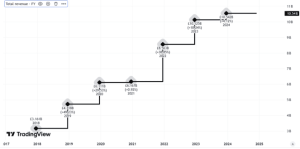Q.: Hi Dan, I am the beneficiary of several nonqualified annuities that my father had. The companies holding these annuities are saying that the cost basis is undetermined. How can I avoid being double taxed on the amount my father paid for these annuities with after tax money? Please help!
Thanks, Mary
A.: Hi Mary,
Yikes. You are wise to be looking at this. As a nonqualified contract, the account was started with after-tax funds, often referred to as “basis.” Earnings will be taxed when withdrawn but basis should not be taxed again. You should talk to the insurance agent on the account or your adviser about the details but here are some basics that may help fix the problem.
If the annuity was purchased by your dad from the company that holds the contract now and he hasn’t taken money from it, the basis is his original investment plus any additional purchases. Obviously, the company should have that in their records. The amount of an initial purchase should be in the application attached to the contract. If not, most account statements include the purchase amounts.
Chances are good the insurance company is saying they do not have the basis because your dad purchased this annuity with money that came from another annuity, or a life insurance policy and they were not given the basis amount. These transfers are done via a “1035 exchange,” named after the section of the tax code describing these transfers.
One easy to spot clue that this contract was obtained through a transfer is to look at the original purchase amount on the statement. If it is not a nice even number like $20,000, say something like $23,876.34, it’s almost a sure thing the contract was bought via a 1035 exchange. This is a strong clue because, no one buys an annuity and strokes a check for a weird number. It is almost always an even number.
If it was an exchange, the cost basis of the old contract carries to the new one. The current insurance company should have records of which company held the old contract. In fact, it should be on the application for the contract you inherited because it was a “replacement” transaction.
He may have exchanged more than once so some digging may be needed. Follow that same chain I just described. See what the purchase price of the contract is and look on the application for the prior company. Ultimately you are looking for the original purchase amount or a company that had a basis figure that should have been given to and recorded by the new company.
When you do have the basis identified, keep your own records of course but ask the current insurance company if they will add it to their records. If they refuse, at least you have documentation for the IRS if they ever question what you report for taxable amounts distributed.
Good luck!
If you have a question for Dan, please email him with ‘MarketWatch Q&A’ on the subject line.
Dan Moisand is a financial planner at Moisand Fitzgerald Tamayo serving clients nationwide but with offices in Orlando, Melbourne, and Tampa Florida. His comments are for informational purposes only and are not a substitute for personalized advice. Consult your adviser about what is best for you. Some questions are edited for brevity.
This post was originally published on Market Watch






